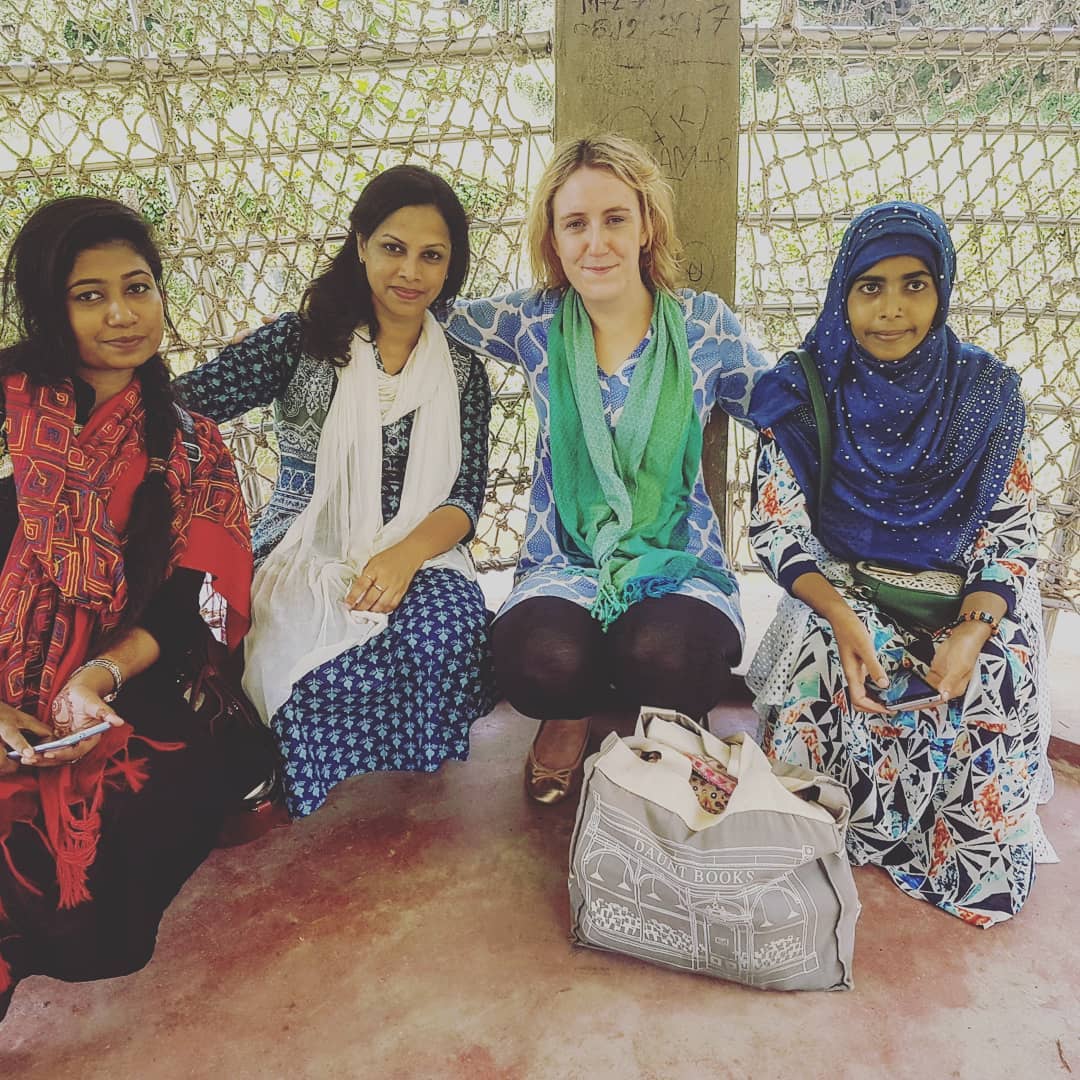More than 850,000 Rohingya men, women and children escaping human rights atrocities in Myanmar have fled over the border to seek refuge in neighbouring Bangladesh.
This represents the largest human exodus in Asia since the Vietnam War.
38% of the population in the communities hosting the refugees live below the poverty line, making it one of the poorest parts of a very poor country.
That’s over 250,0000 people who can’t afford to meet their basic needs – or nearly 47,000 mothers who can’t provide the basics for their children.
As I witnessed with my own eyes during my time working on the humanitarian response to the crisis, the massive influx of refugees in August 2017, which has more than doubled the local population, is having devastating impacts on their already fragile livelihoods.
Although it is officially illegal for the Rohingya population to seek employment in Bangladesh, they are able to work informally as day labourers, accepting a lower rate than their host community counterparts, meaning wage rates are going down. At the same time, crippling inflation is taking place, and extreme pressure is being placed on the natural resources many members of the community depend on for their livelihood. Farmland and forests have been destroyed to make way for the camps, and they are being further depleted due to daily collection of 700 tons of firewood.

One of the many refugee camps that house a total of more than 850,000 Rohingya refugees in Cox’s Bazar
Refugees welcome – but please share the burden
Sadly, this is an all-too common scenario. The most recent data from the United Nations High Commission for Refugees shows that the number of people forcibly displaced worldwide has almost doubled in the past decade, to 79.5 million, the highest figure on record.
Developing countries, and the least developed countries in particular, hold a disproportionately large responsibility for hosting refugees, despite having the least resources to respond to the needs of refugees and the communities that host them. Did you know that Uganda, Sudan and Pakistan each host over a million refugees? By comparison, the UK took in 5,805 refugees in 2018.
The Global Compact on Refugees is a framework that is supposed to enable a more equitable sharing of responsibility and support host communities to get the support they need and refugees to be able to lead productive lives.
The Rohingya refugee crisis provides a test case, which reveals a lot of challenges with implementing the theoretical approach in a real-life scenario.

Three Rohingya children survey the vast expanse of the refugee camps
From mother to mother
During the year I spent working on the Rohingya crisis in Cox’s Bazar, Bangladesh, I got to know a lot of mothers from the host communities, and was able to hear directly from them how it was impacting their lives.
I was prepared for animosity – with so many hundreds of thousands of refugees settling nearby, and the associated challenges making their lives even harder, surely they would be resentful?!
Instead, I was overwhelmed by their generosity and compassion. When I arrived at the home of one mother, she told me she had shared some of her vegetables with the Rohingya, as she had heard that children were not being provided with enough vegetables during food distributions in the camps.
I was fortunate to work with incredible national colleagues on the ground, many of whom are from the local communities themselves and have been working tirelessly to help them, especially over the past few months, when COVID-19 has made everything even harder. Many of them are also mothers, and those who are from other parts of Bangladesh have had to leave their children behind in order to perform their humanitarian roles. It would break my heart seeing them wish their little ones goodnight over the phone, and I was incredibly humbled by the relentless strength and spirit.
As the global refugee crisis is intensifying around the world, many countries are closing their borders, leaving the most vulnerable trapped in violence and uncertainty. Bangladesh did the opposite, and welcomed the Rohingya when they arrived in desperate search of safety.

Exhausted but proud after a long day working in the Rohingya refugee camps with my incredible Bangladeshi colleagues
I’ve chosen tomorrow as the launch date for Khushi Kantha’s first ever collection of ultra-soft, one-of-a-kind, multi-purpose baby blankets because it’s World Children’s Day.
All mothers want the best for their children – and with your support, Khushi Kantha can help them provide it.
By bidding for a blanket through our online auction, you'll help us generate the funds we need to set up full-scale production in Bangladesh as soon as it’s safe to do so.
